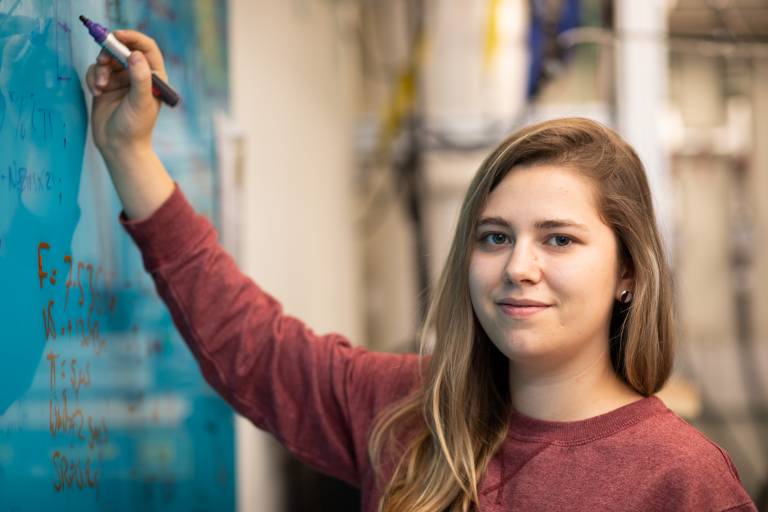Student celebrated by the Spanish Royal Society of Physics
19 July 2021
UCLQ research featured and PhD student celebrated for outstanding scientific work

Research by the UCL Quantum Spin Dynamics research group has been selected as the featured article of the semester by the Condensed Matter Physics Division of the Spanish Royal Society of Physics (División de Física de la Materia Condensada GEFES. Real sociedad espanola de fisica).
The research was led by UCL EPSRC Centre for Doctorial Training in Delivering Quantum Technologies student Virginia Ciriano-Tejel. This prize is given to recognize the scientific work made by the younger members of the Condensed Matter Physics Division (GEFES), that have published articles in internationally renowned journals. Applicants are currently doing their PhD or have finished their PhD thesis in the last 6 years and have to prove their contribution in the article.
The UCL-led research reports the first measurements of a single electron spin in a device fabricated using 300mm wafer scale processing.
The UCLQ team and their colleagues found that on a single split-gate transistor, they could demonstrate sensitive and compact spin readout. They measured the spin polarisation of a single electron confined in the dot formed under one of the gates using spin dependent tunnelling to convert the spin degree of freedom into a charge tunnelling event. The dot formed under the other gate was used as a charge sensor.
Virginia Ciriano-Tejel said: “Our work addresses two issues, first evaluating whether CMOS-compatible manufacturing processes performed at the scale of 300mm wafers can be used to make long-lived spin qubits, and secondly, whether this is possible when combined with a reduced-footprint readout method.”
The long relaxation times and compactness of the spin-readout circuit confirm that silicon transistors, once at the heart of the digital revolution can have a second golden era as the vessel for spin electron qubits.
Director of UCLQ and co-founder of Quantum Motion, Professor John Morton says: “Silicon electronics has already transformed our society over the past decades, and it has huge potential to deliver the scalable platform that can realise the most profound impacts of quantum computing.”
This research received funding from the UK Engineering and Physical Sciences Research Council and the European Union’s Horizon 2020 research and innovation programme, with additional support from the Royal Society and Telefónica British-Spanish Society.
Links:
- Read the research in PRX Quantum
- Read more about this research
- Read about the research in Spanish at the Spanish Royal Society of Physics
- Visit the Quantum Spin Dynamics website
Image:
Photo of Virginia Ciriano-Tejel (Credit: UCL)
 Close
Close

